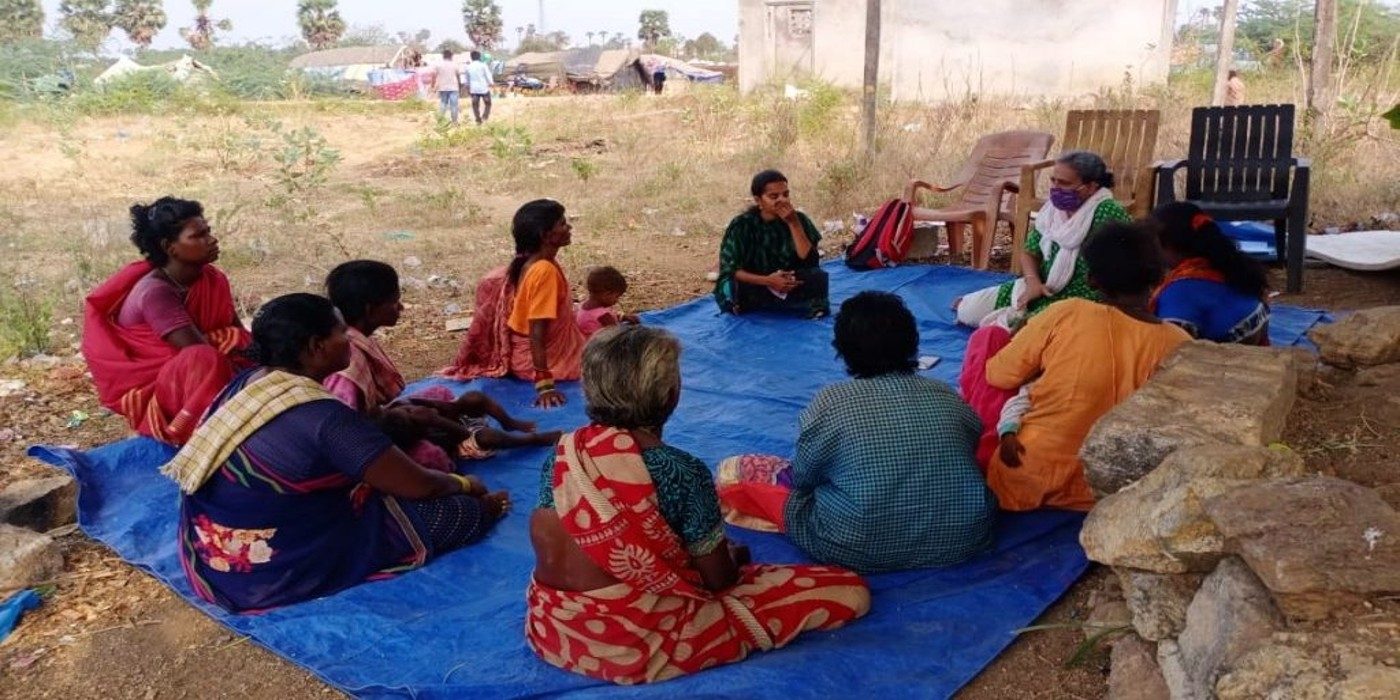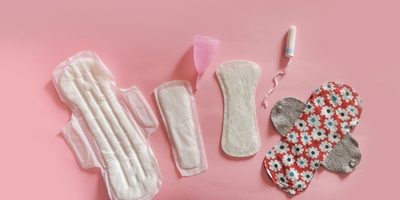
Bloody inconvenience: Menstrual health in waste worker communities
This post was originally published on ARISE Consortium by Josyula K Lakshmi, Senior Research Fellow, George Institute for Global Health and ARISE team
Menstruation presents several challenges in the areas of physical and mental health, comfort, social ease, and productivity for many women. Women with socioeconomic capital, financial resources, employment benefits and security, agency, and autonomy are able to navigate menstruation using acute and longer-term strategies of safe and discreet menstrual hygiene management, exercise of appropriate social arrangements, prevention and screening of gynaecological ailments, promotion of general health, and utilisation of facilities for time off work if necessary. In contrast, women from socioeconomically disadvantaged communities face multiple hardships and have little or no recourse to solutions, taking menstruation from the normal physiological process that it should be to a recurring impediment to women’s physical, social, and economic health. On World Menstrual Hygiene Day 2022, we reflect on the impact that menstruation, and the social stigma around menstruation, have on the lives of women waste workers in India.
The challenges of menstruation for waste workers
Daily wage earners and ‘own account’ workers among waste workers have limited job security, with no option but to undertake their demanding waste picking and sorting activity every day. This involves walking long distances to work, with many forgoing public transport to save the fare. The work necessitates walking, carrying loads of collected waste, and repetitive bending and stretching. For those in difficult terrain, such as in hilly areas, everyday routes to work involve walking on uneven and steep paths, and narrow and steep stairways without railings, while carrying 10-30 kg of waste. Waste workers typically set out for work very early in the day and miss meals until they finish work late in the afternoon.
Women waste workers also have limited or no access to toilets, an amenity that is essential during menstruation. Those who have heavy bleeding prepare for these hard days by using two or three menstrual pads at once, or menstrual pads along with old cotton cloth, resigning themselves to unalleviated physical discomfort to overcome the lack of civic amenities.
Through it all, the overpowering embarrassment associated with mentioning, let alone discussing, menstruation impedes their menstrual hygiene management practices, including procuring or preparing menstrual absorbents, changing, washing, and drying used cloth, or wrapping and disposing of used pads. Over the long term, poverty and cultural norms that deprioritise women lead to suboptimal nutrition and unhealthy behaviours that place girls and women at higher risk for gynaecological disorders, and communicable and non-communicable diseases, while healthcare remains difficult to access.
Many women in the waste worker communities use old cotton cloth that they tear into rags and discard after a single use by open burning, shallow burying, or dumping with municipal garbage. Even these modes of post-use disposal are fraught with embarrassment and the need to wait for dark, and find a relatively deserted spot to discard used menstrual absorbents. Reusable menstrual hygiene products are not preferred, as there are no facilities to support their use, such as toilets, water supply, soap, and clotheslines to dry the washed cloth thoroughly and discreetly. In areas where women in the waste worker communities have friendships and informal social relations centred around employment, and relatively better access to resources, the usage of commercially available disposable menstrual pads is common. But even these women lament the additional out-of-pocket expenditure for menstrual products, and hope for free or low-cost alternatives.
Menstruation and waste work: a two-fold challenge
Women in waste worker communities are also the ones who pick the discarded menstrual absorbents from municipal waste. When these are poorly disposed of, waste workers bear the brunt of it, often having to come into direct skin contact with used menstrual absorbents. Sometimes, street animals, while scavenging for food, tear apart waste bags containing used menstrual absorbents and lay them out in the open. For the waste workers, it is then not just a matter of shame, but also an increased risk of contracting infections that their occupation poses.
In addition, women from economically weak sections of society have always had to bear the double burden of responsibilities both inside and outside the home. This includes unrelieved sociocultural responsibilities in the family and community (such as care for children and the sick and infirm, as well as the duty to preserve modesty by not discussing or displaying menstrual hygiene products or practices), without the benefits of facilities for rest, recuperation, and recreation.
Menstruation leave: only for some
Affluent women with resources can claim menstrual leave or sick leave (in places where menstrual leave is not formally accepted). But such systems are not available for women in waste worker communities. They are apprehensive about seeking leave as missing work would mean that it would pile up for them to undertake on their return, or other workers would have to shoulder the burden of their work.
Improving menstrual hygiene management, and ending the stigma
Promoting safe and acceptable menstrual hygiene management for women in this complex context of sociocultural expectations and deprivation requires both adaptive and mitigating measures. This includes, for example:
- safe, affordable disposable menstrual absorbents, as well as convenient facilities for disposal that have minimal adverse impact on the environment and on women’s health;
- prompt and comprehensive provision of basic civic amenities, such as access to safe and affordable water and sanitation facilities;
- community engagement to disrupt the silences, and eliminate the embarrassment and stigma associated with menstruation; and
- accommodative workplace policies and legal safeguards that cater to the specific circumstances of women’s varied life experiences.
ARISE endeavours to promote safe and sustainable menstrual hygiene management
The ARISE team at The George Institute is embarking on a menstrual hygiene management intervention among women in waste worker communities in three action sites. The intervention, planned to be conducted over four months, will involve:
- group and individual discussions to understand menstrual practices and norms;
- distribution of sustainable menstrual hygiene management kits (including menstrual cups, reusable cloth pads, and period underwear, as well as amenities for post-use treatment); and
- the filling in of a menstrual health log complemented with discussions to understand women’s experiences of using the kits over the duration of the project.
This work will provide us with findings on current practices, barriers and enablers of safe, healthy, and sustainable menstrual hygiene management, and acceptability and ease of use of various menstrual hygiene products. We anticipate that these findings will inform the development of future programmes by local governments, workers’ collectives, and NGOs in these sites as well as in other communities, particularly those facing socioeconomic disadvantages.


